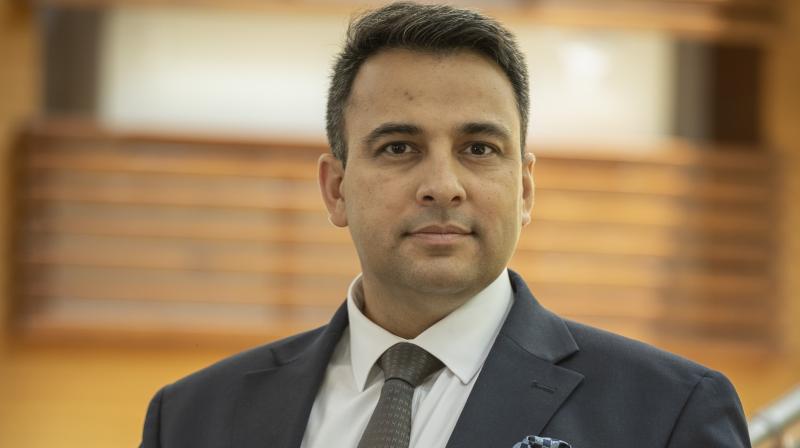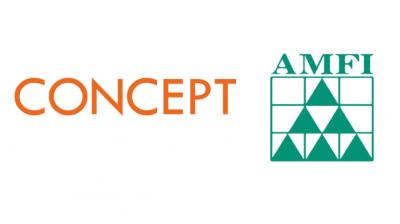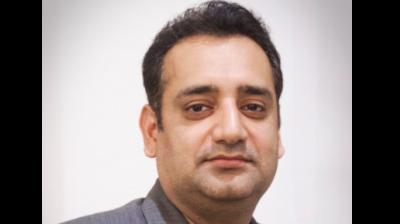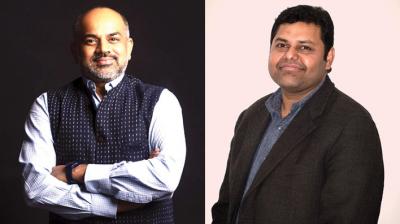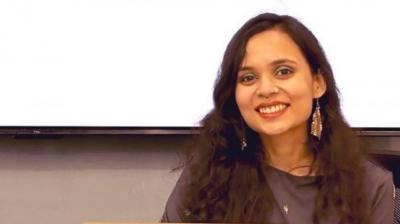Two decades ago, TCS was a company without a formal marketing setup, limited brand visibility, and annual revenues under a billion dollars.
Today, it’s a USD 21.3 billion business with global brand recognition. From introducing the brand in Latin America to building its presence in 45 markets, Abhinav Kumar, global chief marketing officer, TCS, has played a central role in its evolution. He has also been key to positioning the company’s marathon partnerships, from New York to Mumbai, as powerful global branding platforms.
In conversation with Manifest for the August issue, Kumar shares his approach to building trust in a fragmented industry, navigating brand strategy through crises and across continents, and preparing for the next big battlegrounds in AI and sustainability.
He also breaks down how instinct and data can work together, as well as what it takes to future-proof a B2B brand in 2025.
When Kumar looks back at the year he joined TCS, the contrast is stark.
“When I joined TCS in 2002, it was a different world and a very different company,” he said. At the time, TCS had about 14,000 employees and revenues of USD 800 million. Despite being one of the pioneers of India’s IT industry, the company remained largely invisible outside its client base. There was no formal CMO, no centralised marketing function, and brand-building was not yet a priority.
That changed with the 2004 IPO, which Kumar describes as the turning point. Going public demanded a new level of transparency, external engagement, and storytelling. Suddenly, marketing had to professionalise and catch up with the scale of the business. “At the IPO, many people didn’t realise TCS was the biggest IT company around, simply because others had listed earlier and made more noise,” he recalled. Closing that visibility gap became the first big mission.
The results show how far the brand has come. In 2010, Brand Finance valued TCS at USD 2.3 billion. By 2024, that figure had risen to USD 21.3 billion, nearly a ninefold increase. Awareness among business decision-makers leapt from 33% in 2010 to 95% today, putting the brand on par with global leaders. Kumar believes this success is tied not just to marketing spend but to a consistent focus on brand, relationships, and trust. For multi-million-dollar transformation deals, he pointed out, clients need confidence that the partner will deliver.
Looking ahead, Kumar sees the next big challenge as future-proofing. “The next phase is about future-proofing - services companies like us need to show we’re essential to the future,” he said. The centre of gravity in tech conversations often tilts toward pure-play firms and hyperscalers, but he wants TCS to be viewed as a serious contender in AI and emerging technologies.
The company’s global marketing engine is already vast, with 700 professionals spread across 55 countries and more than 400 events a year. Kumar himself moved to South America to set up operations in Chile, Uruguay, and other markets, building brand presence from scratch. That hands-on experience of embedding TCS in unfamiliar territories, he noted, shaped his perspective on what it takes to establish trust in new environments.
Sustainability, too, has become a defining part of the marketing agenda. “Sustainability is a priority for us. The Tata Group has pledged to be net zero by 2045,” he said. A recent example is ReScore, an app built to measure sustainability at large-scale sporting events, now in use at marathons in London, New York, and Toronto. Kumar sees tools like this as proof that marketing budgets can influence real-world change, with sports sponsorship alone representing USD 125 billion in annual global spend.
For him, effective marketing also requires breaking stereotypes. “There’s a myth that B2B has to be dry or technical. We are still talking to humans,” he explained. TCS’s marathon sponsorships are a case in point, blending technology with emotion and creating shared experiences between employees, clients, and the wider public.
As for the future of marketing, Kumar remains clear-eyed. “Marketers have to stay learnable. What worked in 2004 won’t work now,” he said. Metrics and digital performance matter, but he cautions against overlooking the intangible power of brand and trust forces that often make the biggest difference, even if they’re not immediately measurable.
Read the full chat with Kumar in our August issue. Click here to buy it!

.jpg)
